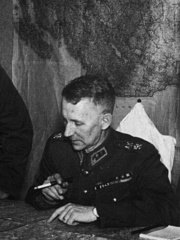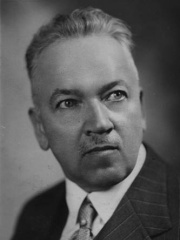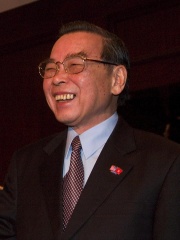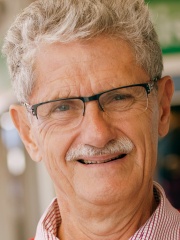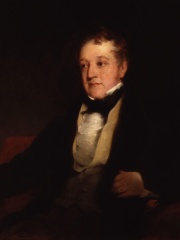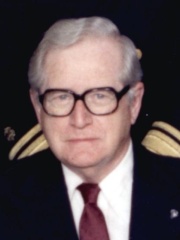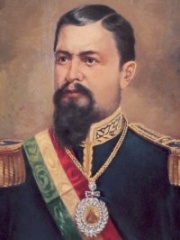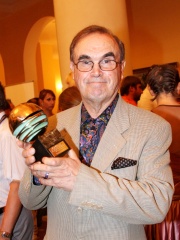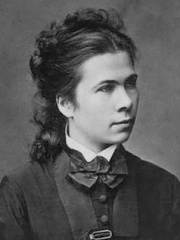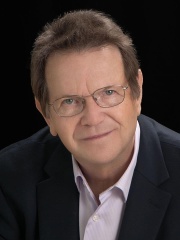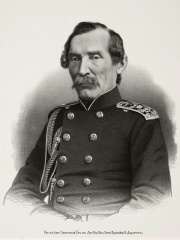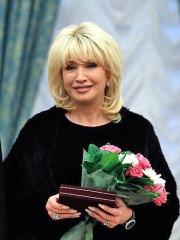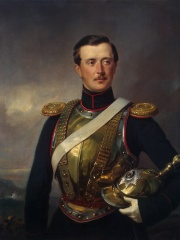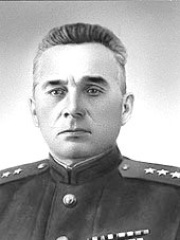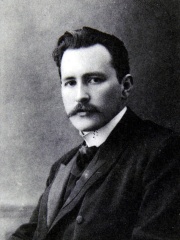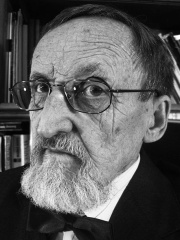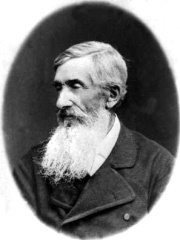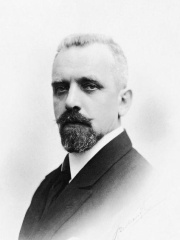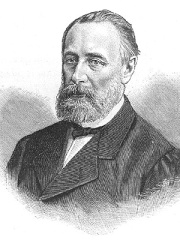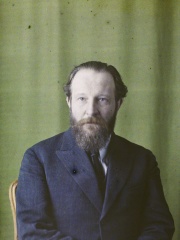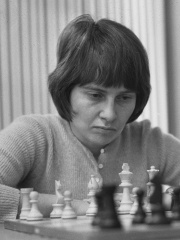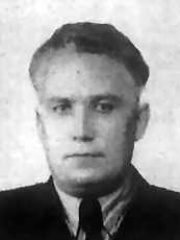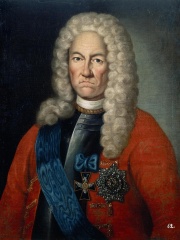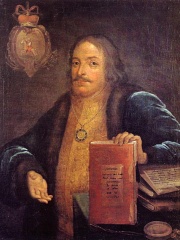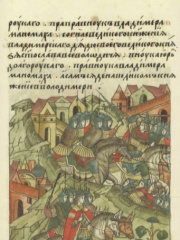POLITICIAN
Bulan
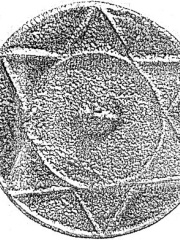
 Bulan
Bulan
Bulan (meaning "elk" or "hart" in Old Turkic) was a Khazar ruler, and the founder of the Bulanid dynasty. He is usually identified as being the same with Sabriel, the king who led the Khazar conversion to Judaism, and thus he is sometimes referred to as Bulan Sabriel. Read more on Wikipedia
His biography is available in 17 different languages on Wikipedia (up from 16 in 2024). Bulan is the 13,591st most popular politician (up from 14,085th in 2024), the 1,491st most popular biography from Russia (up from 1,723rd in 2019) and the 372nd most popular Russian Politician.
Memorability Metrics
Page views of Bulan by language
Among POLITICIANS
Among politicians, Bulan ranks 13,591 out of 19,576. Before him are Harald Öhquist, Rafael Erich, Phan Văn Khải, Mogens Lykketoft, El Hadj Umar Tall, and William Huskisson. After him are Ramiro de León Carpio, Gualberto do Rosário, Yury of Zvenigorod, Otis Bowen, Hilarión Daza, and Bas of Bithynia.
Most Popular Politicians in Wikipedia
Go to all RankingsHarald Öhquist
1891 - 1971
HPI: 57.62
Rank: 13,591
Rafael Erich
1879 - 1946
HPI: 57.62
Rank: 13,592
Phan Văn Khải
1934 - 2018
HPI: 57.62
Rank: 13,593
Mogens Lykketoft
1946 - Present
HPI: 57.62
Rank: 13,594
El Hadj Umar Tall
1797 - 1864
HPI: 57.62
Rank: 13,595
William Huskisson
1770 - 1830
HPI: 57.62
Rank: 13,596
Bulan
HPI: 57.62
Rank: 13,597
Ramiro de León Carpio
1942 - 2002
HPI: 57.61
Rank: 13,598
Gualberto do Rosário
1950 - Present
HPI: 57.61
Rank: 13,599
Yury of Zvenigorod
1374 - 1434
HPI: 57.61
Rank: 13,600
Otis Bowen
1918 - 2013
HPI: 57.61
Rank: 13,601
Hilarión Daza
1840 - 1894
HPI: 57.61
Rank: 13,602
Bas of Bithynia
397 BC - 326 BC
HPI: 57.61
Rank: 13,603
In Russia
Among people born in Russia, Bulan ranks 1,491 out of 3,761. Before him are Gleb Panfilov (1934), Nadezhda Suslova (1843), Reinhard Bonnke (1940), Yevfimiy Putyatin (1803), Irina Allegrova (1952), and Anatoly Tarasov (1918). After him are Gavriil Popov (1904), Yury of Zvenigorod (1374), Pyotr Andreyevich Shuvalov (1827), Vasily Gordov (1896), Nikolai Vissarionovich Nekrasov (1879), and Boris Parygin (1930).
Others born in Russia
Go to all RankingsGleb Panfilov
FILM DIRECTOR
1934 - 2023
HPI: 57.65
Rank: 1,485
Nadezhda Suslova
PHYSICIAN
1843 - 1918
HPI: 57.64
Rank: 1,486
Reinhard Bonnke
WRITER
1940 - 2019
HPI: 57.64
Rank: 1,487
Yevfimiy Putyatin
MILITARY PERSONNEL
1803 - 1883
HPI: 57.64
Rank: 1,488
Irina Allegrova
SINGER
1952 - Present
HPI: 57.63
Rank: 1,489
Anatoly Tarasov
SOCCER PLAYER
1918 - 1995
HPI: 57.62
Rank: 1,490
Bulan
POLITICIAN
HPI: 57.62
Rank: 1,491
Gavriil Popov
COMPOSER
1904 - 1972
HPI: 57.61
Rank: 1,492
Yury of Zvenigorod
POLITICIAN
1374 - 1434
HPI: 57.61
Rank: 1,493
Pyotr Andreyevich Shuvalov
POLITICIAN
1827 - 1889
HPI: 57.61
Rank: 1,494
Vasily Gordov
MILITARY PERSONNEL
1896 - 1950
HPI: 57.61
Rank: 1,495
Nikolai Vissarionovich Nekrasov
POLITICIAN
1879 - 1940
HPI: 57.59
Rank: 1,496
Boris Parygin
PHILOSOPHER
1930 - 2012
HPI: 57.59
Rank: 1,497
Among POLITICIANS In Russia
Among politicians born in Russia, Bulan ranks 372. Before him are Izmail Sreznevsky (1812), Carl Enckell (1876), Mikhail Katkov (1818), Nikolai Avksentiev (1878), Alla Kushnir (1941), and Frol Kozlov (1908). After him are Yury of Zvenigorod (1374), Pyotr Andreyevich Shuvalov (1827), Nikolai Vissarionovich Nekrasov (1879), Jacob Bruce (1669), Vasily Golitsyn (1643), and Mikhail Khorobrit (1229).
Izmail Sreznevsky
1812 - 1880
HPI: 58.11
Rank: 366
Carl Enckell
1876 - 1959
HPI: 57.90
Rank: 367
Mikhail Katkov
1818 - 1887
HPI: 57.90
Rank: 368
Nikolai Avksentiev
1878 - 1943
HPI: 57.84
Rank: 369
Alla Kushnir
1941 - 2013
HPI: 57.73
Rank: 370
Frol Kozlov
1908 - 1965
HPI: 57.68
Rank: 371
Bulan
HPI: 57.62
Rank: 372
Yury of Zvenigorod
1374 - 1434
HPI: 57.61
Rank: 373
Pyotr Andreyevich Shuvalov
1827 - 1889
HPI: 57.61
Rank: 374
Nikolai Vissarionovich Nekrasov
1879 - 1940
HPI: 57.59
Rank: 375
Jacob Bruce
1669 - 1735
HPI: 57.58
Rank: 376
Vasily Golitsyn
1643 - 1714
HPI: 57.57
Rank: 377
Mikhail Khorobrit
1229 - 1249
HPI: 57.53
Rank: 378
